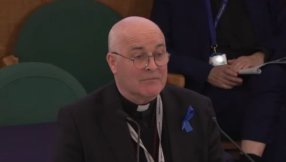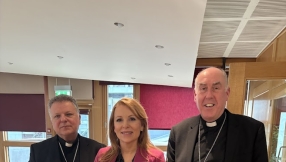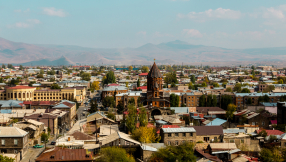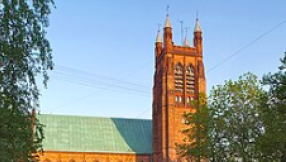The Church of Scotland is backing calls for a second referendum on Scottish independence.
Dr Richard Frazer, a senior cleric in the national Presbyterian Church, said it 'would be wrong' for Theresa May to block a second poll, less than three years after Scotland voted to stay in the United Kingdom.
The Prime Minister has yet to say whether she will allow another independence vote after Scotland's First Minister Nicola Sturgeon announced her plans for a new referendum by Spring 2019.
But there is speculation Number 10, which has the final say on whether to allow a vote, will block it until after the Brexit negotiations are completed.
Frazer, convenor of the Church and Society Council, insisted the Church of Scotland would keep a neutral stance on the issue.
But he was at pains to stress the Church's policy of opposing Brexit, with Sturgeon saying an independence vote would secure Scotland place in the European Union.
'In the 2016 EU Referendum, the Church of Scotland spoke out in favour of continued membership as being in the best interests of Scotland, the UK and Europe,' Frazer said. 'This has been the Church of Scotland's policy since 1996 and it remains the Church's current position.'
He said there was 'nothing inevitable' about the independence debate dividing Scotland following Theresa May's accusation the Scottish National Party was causing 'more uncertainty and division'.
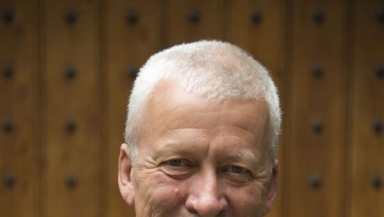
Frazer said: 'There are justifiable concerns that the debate could be bitter, divisive and divert attention away from the hugely complex negotiations which are taking place as the UK prepares to leave the EU.'
He added: 'Whilst these risks are real, there is nothing inevitable about this debate being divisive and acrimonious. All those who take part in this debate about Scotland's future – and the UK's future as well – must be committed to holding a positive and informative debate.
'The Church of Scotland will contribute to this debate in creative and inclusive ways. It will also seek to call to account those who exaggerate their claims or who move from committed debate to inappropriate ways of treating one another.
'On all sides people hold their convictions with honesty and integrity and they must be treated as such. As we continue to grapple with these complex, contested and important decisions it is important that we do so with as much grace as we can muster and in a way that recognises the humanity of all concerned.
'All those who take part in this debate about Scotland's future – and the UK's future as well – must be committed to holding a debate which informs and inspires and not one which derides and dismisses.'










